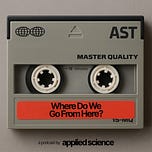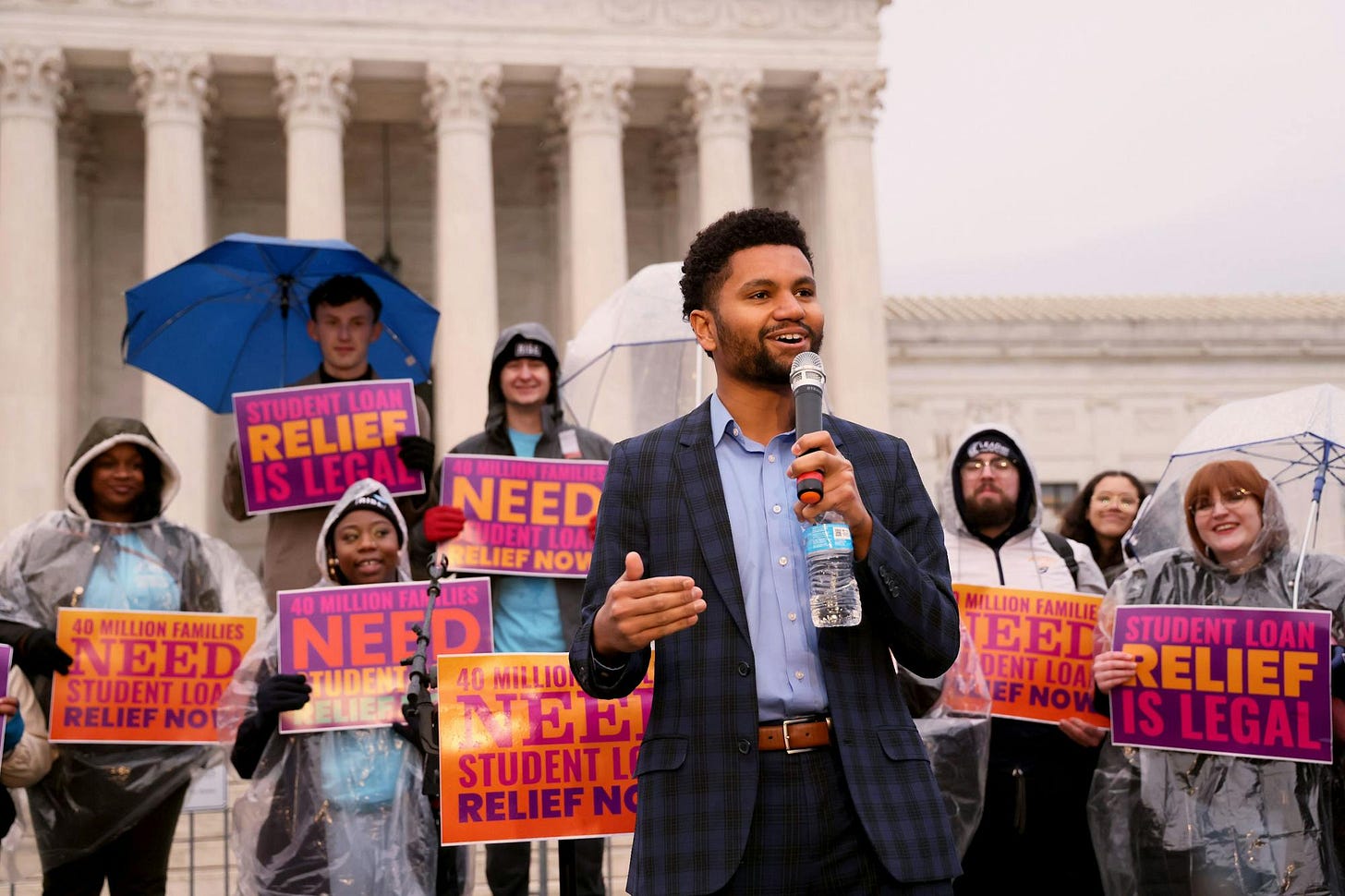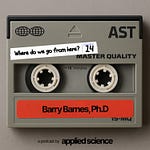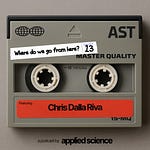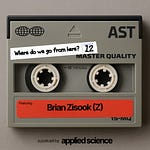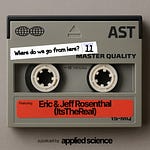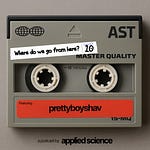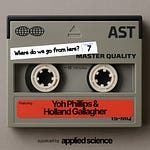On this episode of Where Do We Go From Here?, I spoke with Rep. Maxwell Frost, the congressman representing Florida’s 10th District.
You might immediately wonder: What does a congressman have to say about the future of art and media? And if he does have something to say about art and media and whatever the hell else this show is about, will it be good?
I’ve known Maxwell since before he became the youngest elected member of Congress and the first representative to come from Gen Z. I was impressed with him when I met him years back, and continue to be in awe of his bravery and clear conviction in such a toxic political landscape.
As we discuss in the episode, Maxwell has a lifelong musical history and appreciation of the arts, not only as creative pursuits to admire, but also as a field that can stimulate real economic growth. To that point, last year, I had the privilege of co-authoring a Billboard op-ed with him about the need for federal arts funding in America and his plan to introduce the CREATE Art Act, a produced bipartisan grant system for working and aspiring artists. We talk about music, activism, and finding your purpose in chaotic times. It’s a great conversation, very candid, and likely not what you’d expect from an elected official. Maxwell is the sort of person who speaks honestly of his experience and faces every problem with an empathetic, humanistic approach, the sort of politician you’d hope for in an age of broad institutional failure.
A few key takeaways from our conversation…
Investment in the arts is an investment in labor: One of the core tenets of Frost’s proposed CREATE Art Act is the notion that a healthy commercial arts ecosystem mean more jobs and more money flowing into America. He explains that the CREATE Art Act aims to "create that program where artists of many different levels…can apply to pretty significant grants up to $200,000 to fund long-term projects." He takes a decidedly practical, populist approach, pushing for a repositioning of how we “as a country…think about the arts,” suggesting that we “have to see [the arts] as work that deserves to be compensated with the same benefits protections as any other job in this country." He positions the Act as a "workforce development program" aimed at "developing artists across the country, ensuring you have the resources to create their art and go out and spur the economy." We also talk a bit about the arts as a source of soft power, one wielded historically well by American culture organs, and recently challenged by countries like Korea and China, who have made deep investments into film, music, and video games.
Music can still influence politics, though maybe not in the way you’d think: Rep. Frost credits a great deal of his organizing, campaigning, and governing philosophies to his time spent playing in bands, operating as a manager, and working in live music. He recounts organizing shows in high school, "putting together the street team, going out and convincing people to like come to this show," and how this translated to his political campaigns. When he got into office, Rep. Frost noticed he "didn't have to learn how to talk to people about something they weren't really sure about. I didn't have to learn how to bring people together to create a certain product because I had already gotten that" from his music experience. Growing up with a working musician for a father, he also saw the constant strain and financial insecurity facing anyone choosing to make a living of the arts, a clear pathway to his working class-centric policies. He also continues to see the arts as a physical uniter, launching the MADSOUL Festival in his native Orlando last year.
"When you don't have all the power that you want, you have to use all the power that you got." Though he currently occupies the role of a legislator, the spirit of an activist animates Rep. Frost’s everyday. "We can't assume that everybody's paying attention," he says, necessitating direct action to "shake the country and say, look at this." We spoke at length about the difficulties facing organizers in this current political and technological atmosphere, though Frost provides healthy reminders that there is true power in numbers (and particularly emphasizes the sort of populist message that has been so successfully co-opted and corrupted by the current regime of kleptocrats strip-mining American government).
Special thanks to Anna Kasper for producing, Will Grogan for providing our music, and Hugh Huntingford for designing the Applied Science logo and podcast cover image.
Though Los Angeles’ fires are finally fully contained, the efforts to rebuild remain daunting. As always this year, please find some resources below with direction on those in need of donations, volunteering opportunities, and reliable information sources.
LA Country has launched an exhaustive website with resources for preparedness and recovery (including links for debris removal and right of entry forms).
Mutual Aid Network of Los Angeles’s spreadsheet lists an expansive number of funds, organizations, and aid types across the expanse of the city. A great place to start.
A comprehensive volunteer and support guide from local organization LA2050.
A good post from The Angel on different ways to get involved with relief efforts.
A book/PDF written for parents to help explain the enormity of wildfire to their children.
PBS SoCal’s resources for how to talk to children about wildfires.
A U.S. government fact sheet on protecting children from wildfire smoke and ash.
A spreadsheet of GoFundme’s for Black families from Altadena who have been displaced or lost their homes. Altadena is one of Los Angeles’ historically Black centers, a place where generations of hard-earned wealth and equity in the land were decimated in a matter of days. (first seen via Saul Williams)


